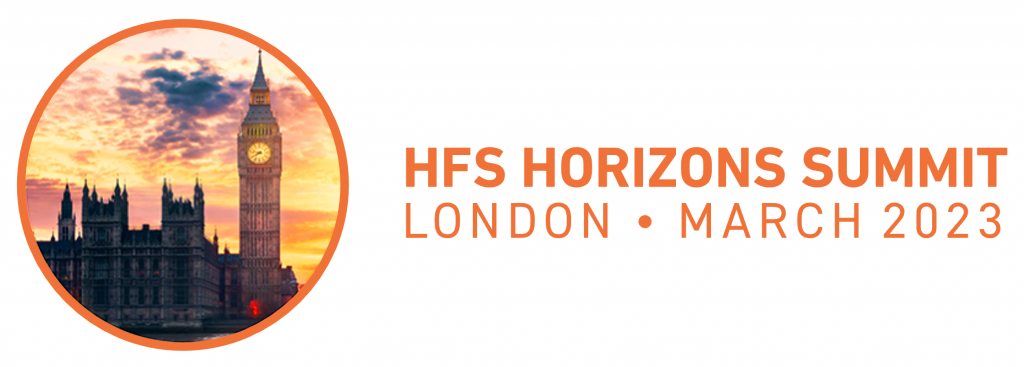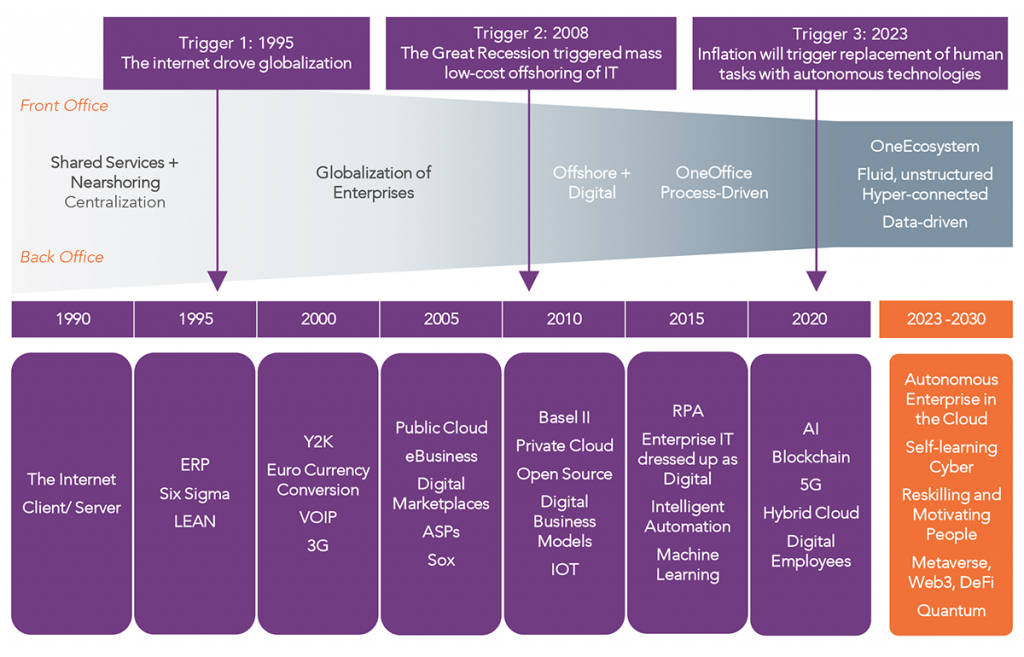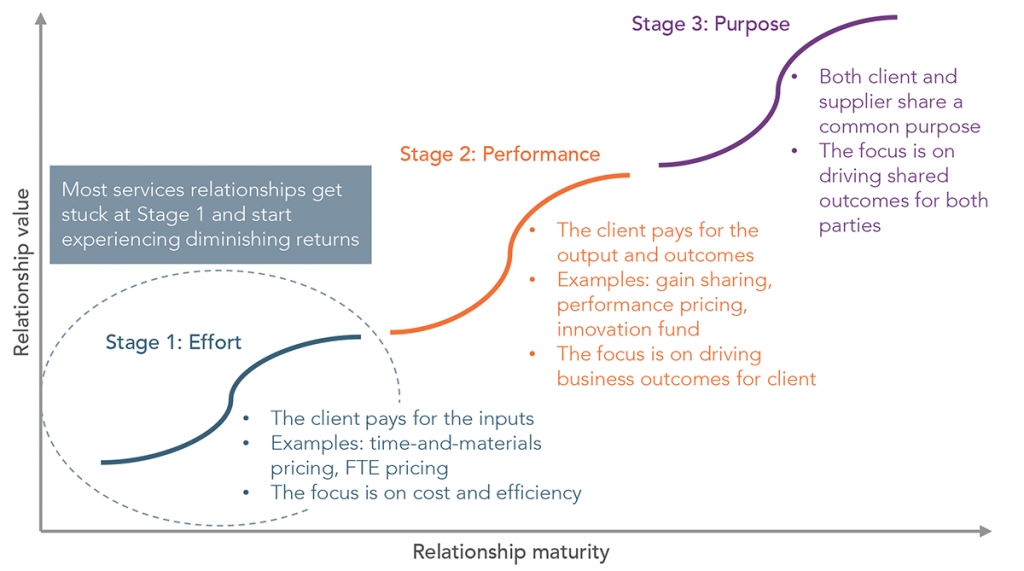
The past few years have been challenging with disruptions caused by the pandemic, the Great Resignation, and, more recently, tech layoffs. Globally, cybersecurity risks, supply chain disruptions, inflation, changing customer expectations, and attrition of quality staff have impacted enterprises’ strategic goals.
In an HFS Horizons London Summit panel discussion titled The third trigger of change—Can today’s enterprises survive with their current operating model? industry leaders unanimously agreed that enterprises that anticipate these changes and understand the complexity, dynamics, and risks in today’s environment will evolve to be responsive, agile, flexible, and resilient in turbulent times. Speaking on the panel, hosted by HFS Chief Analyst and CEO Phil Fersht, Leslie Willcocks, Professor London School of Economics and Political Science, declared, “Globalization has a new context, the new abnormal. It is a very difficult world to manage. Now we need a plan B and C.”
This is not the first time businesses have faced such triggers. In 1995, the internet revolutionized globalization, the 2008 recession triggered mass low-cost offshoring of IT, and the current environment (the third trigger) drives us toward autonomous organizations (see Exhibit 1).

Source: HFS Research, 2023
The panel discussion narrowed down on action points leaders need to consider for success in the world that trigger three is shaping.
Emphasis on the ecosystem has never been stronger. Relationships must evolve from valuing shared effort to delivering on performance and then toward purpose-led partnerships (see Exhibit 2). Most service relationships get stuck at Stage 1 (the shared effort stage) and start witnessing diminishing returns. Enterprises will need a wide, hyperconnected ecosystem to serve their customers better. They’ll be expecting their service providers to deliver outcomes and collaborate toward shared purposes. The panel unanimously agreed that building a stronger, relevant, customer-centric, and resilient ecosystem will guide the way. Tiger Tyagarajan, CEO of Genpact, added, “We are in a connected world; every aspect is felt everywhere. You must be flexible to react in any direction.”

Source: HFS research, 2023
The current inflationary triggers and the onslaught of generative AI keep enterprise leaders on the edge of their seats amid much ambiguity regarding how these factors will ultimately affect them. Rohan Narayan Murthy, Founder and CTO of Soroco, called out the fact that ChatGPT had, so far, just touched text. ChatGPT taking action would be the next (inevitable) step, he added. It could have a positive impact on processes, but it could also lead to job losses.
Low value-add jobs are the easiest to replace, which is a call to action for enterprises to undertake a massive reskilling exercise. Talent has changed; companies must attract the right talent and enable existing workforces through reskilling to retain talent, create capability, and reduce repetitive non-value-adding tasks for humans.
Leaders pointed out they need to use AI responsibly to amplify human potential.
The panel agreed that sustainability must be a focus across the enterprise—in operations, IT, and extending beyond enterprises to the supply chain and partner ecosystems. Enterprises will have to share a common goal of sustainable growth. John Keppel, Chief Sustainability Officer, Zurich UK Insurance Company Ltd, called out, “People are terrified by climate, and they are terrified by AI. They are terrified by climate because they know what is going to happen. They are terrified by AI because they do not know what will happen.”
Enterprise leaders must not be paralyzed by those fears but instead use them as motivation to act.
Resilient, future-thinking enterprises that continue investing in customer experience, new product development, and transformational business models will have an edge as we move beyond the disruptions of high inflation, war, and supply chain nightmares toward a more stable economy. Keshav R. Murugesh, Group CEO of WNS Global Services, stressed that digital transformation remained the key to future-proofing operating models and making them agile and resilient.
Developing all aspects of talent, technology, sustainability, and leveraging good partners will make enterprises resilient. In this connected world, enterprise leaders must be flexible and develop agility in their thinking, planning, and organizational capabilities to rapidly respond to change.
Register now for immediate access of HFS' research, data and forward looking trends.
Get StartedIf you don't have an account, Register here |
Register now for immediate access of HFS' research, data and forward looking trends.
Get Started